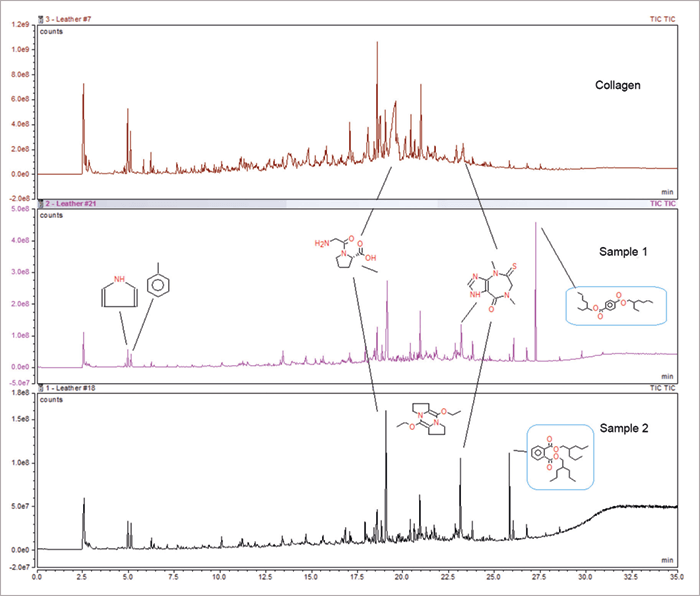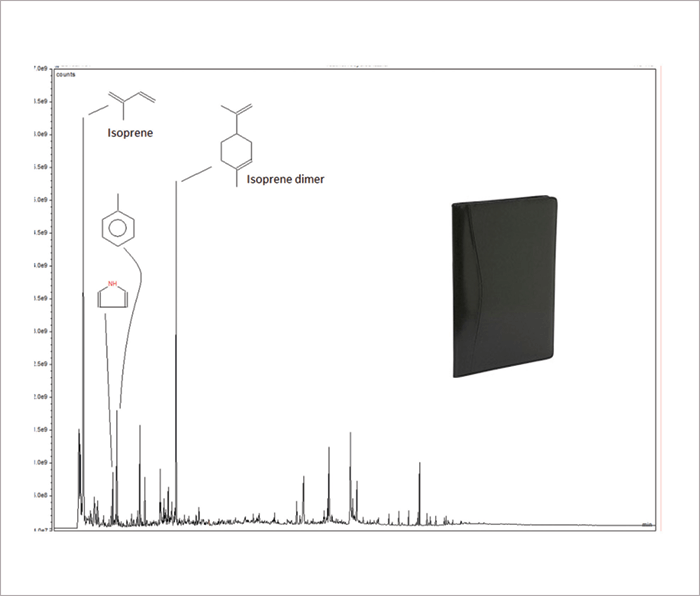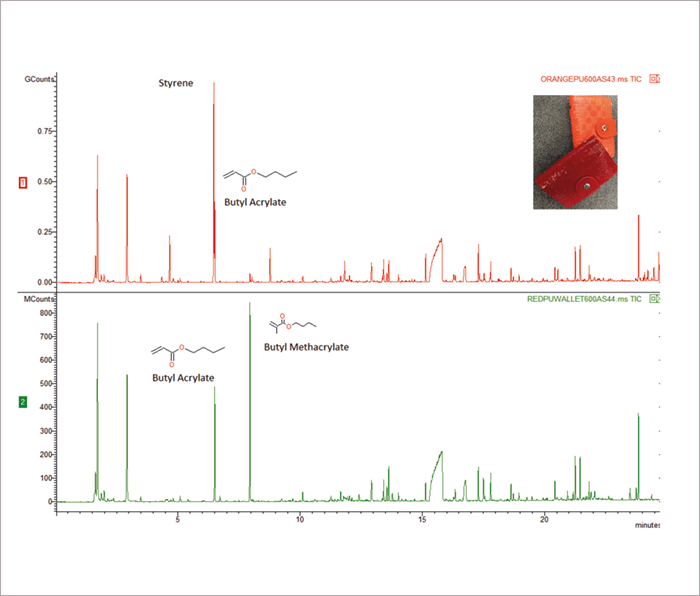Pyrolysis-GC/MS allows for the analysis of organic materials that are too large to be compatible with GC alone. Material is heated in a controlled and reproducible way, facilitating breakdown into volatile compounds that can be studied by GC/MS. Results are polymer specific, making pyrolysis the perfect way to analyze all types of polymers, including natural and synthetic textiles, such as leather and artificial leather.
Genuine leather is created by tanning rawhides from cattle. The main constituent of animal skin is a protein called collagen. The building blocks of protein are amino acids, so the pyrolysis of collagen results in many ring structures such as pyrroles and indoles. Even though genuine leathers are all made from similar raw material, pyrolysis could still unveil subtle difference between different manufacturers by comparing the additives and contaminants. Figure 1 shows a collagen standard and two genuine leather samples pyrolyzed under the same condition. Comparing to the standard, one leather sample uses terephthalate plasticizer, and the other one has a phthalate plasticizer.




Tel.: +1 800 541 6593





